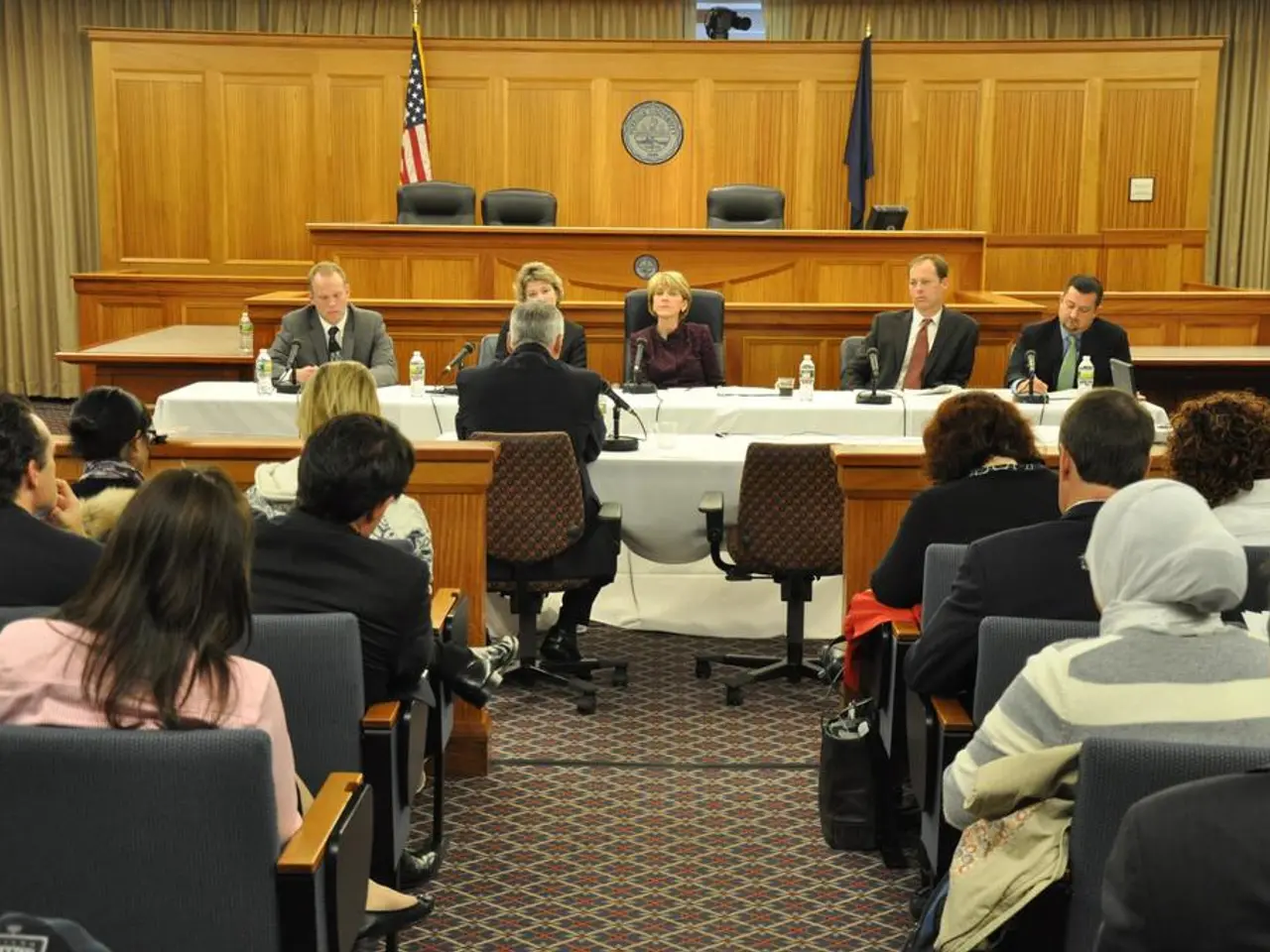Navigating Your Rights as a Condo Owner in Florida: A Comprehensive Guide
Understanding Legal Entitlements for Florida Condo Owners
Welcome to the land of sunshine and endless opportunities, where owning a condo can be an exciting adventure. But while it does promise a more laid-back lifestyle, living in a condo means you're playing by a unique set of rules. To ensure you're not taken for a ride, familiarize yourself with the key legal rights for condo owners in Florida.
The Pivotal Role of Condo Associations
Condo associations are here to ensure shared spaces thrive and the property remains in tip-top shape. They set the rules, collect fees, and handle the maintenance of common areas. As a condo owner, you're an automatic member of the association, empowering you to voice your opinions and help shape decisions. Just keep in mind that you're also obliged to abide by the rules.
In Florida, your legal rights include participation in association meetings, access to financial records, and the ability to challenge decisions that seem unjust or don't serve your best interests. Remember, this participation is a crucial step to ensuring transparency and safeguarding your interests.
Transparency: Access to Records & Association Meetings
One of your essential rights is the access to association records, as stipulated by Florida law. Condo associations must maintain and make available important documents like financial records, meeting minutes, and official correspondence. This transparency allows you to keep a close eye on how your fees are being used and monitor the financial health of the association.
If you suspect your association isn't abiding by record access laws, you have the right to formally request access if they initially refuse. Should they remain obstructive, you can pursue legal action to enforce your rights. This access is invaluable for keeping the association accountable and guaranteeing funds are used responsibly.
Regarding association meetings, Florida law empowers condo owners to attend board meetings virtually or in person (depending on the association's governing documents and state law interpretations). In some instances, virtual meetings may be required.
Voting Rights: The Power of Your Vote
When it comes to voting, your legal rights include electing board members and approving major projects or budget changes. Your vote can significantly impact how your community is managed, so it's crucial to stay informed and attend meetings. If you believe the election process is unfair or manipulated, you can challenge the results and demand a fair election.
Maintenance and Repairs: Whose Job Is It?
Knowing the intricacies of maintenance and repairs is key. Typically, condo owners are responsible for the interiors, while associations tackle common areas. It's essential to remember that disputes over who's responsible for specific repairs may arise.
Fortunately, Florida law grants you the right to request repairs to common areas and challenge assessments you feel are unwarranted. In the event of a dispute, reviewing your condo association's governing documents and seeking legal advice can help clarify the situation while protecting your rights.
Dispute Resolution: Planning Ahead
Disagreements between condo owners and associations are not uncommon. Understanding Florida's dispute resolution approaches is essential for navigating conflicts successfully. These approaches include mediation and arbitration, among others. You have the right to seek resolution through these channels, ensuring your concerns are addressed fairly.
Before resorting to legal action, it's always best to engage in open communication with the association and try to find a mutually agreeable solution. If disagreements escalate, being aware of your legal options is crucial to protect your interests.
Shedding Light on the latest Laws: HB 913
The recent passing of HB 913 brings significant changes to Florida's condo laws, setting stricter rules for community association managers, enhancing transparency, and addressing concerns about maintenance failures and financing procedures. With HB 913, condo owners can expect more protective measures and improved enforcement standards.
In conclusion, understanding the legal landscape in Florida is essential for condo owners like you. Remember that participating in association meetings, accessing records, exercising your voting rights, and addressing maintenance and repair issues effectively can safeguard your investment while ensuring a smooth living experience. If you encounter obstacles, don't hesitate to seek professional guidance to protect your interests and make the most of your condo ownership journey.
[1]: Florida Condo and Homeowners Association News: https://www.flcondohoa.com/news/[2]: HB 913, Condominium Reform and Recovery Act: https://www.flsenate.gov/Session/Bill/2022/0913[3]: Florida Department of Business and Professional Regulation: Community Association Managers: https://www.myfloridalicense.com/DBPR/CommunityAssociation/Change/[4]: Dispute Resolution in Florida Condominium Associations: https://www.condolawyermag.com/too-much-drama-enforcing-arbitration-in-florida-condo-disputes[5]: Governance, Transparency, and Risk Management in Florida's Condominium Associations: https://ljwpa.com/conditionsnews/governance-transparency-and-risk-management-in-floridas-condominium-associations-part-i
- In the realm of property investments, a prudent investor might consider real-estate developments in Florida, particularly condos, given their unique legal rights that ensure transparency and fair governance through association meetings, access to financial records, and active participation in decision-making processes.
- To safeguard one's housing-market investment in Florida, it is essential to understand the responsibility distribution between condo owners and condo associations, specifically knowing that owners are usually responsible for interior repairs while associations handle common area maintenance. Furthermore, owners have the legal right to request repairs and challenge unfair assessments.




